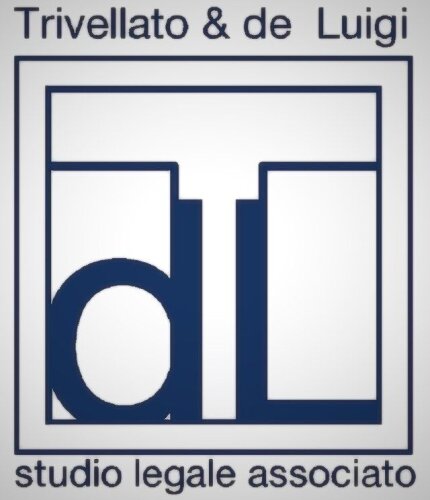Best Collaborative Law Lawyers in Venice
Share your needs with us, get contacted by law firms.
Free. Takes 2 min.
Free Guide to Hiring a Family Lawyer
List of the best lawyers in Venice, Italy
About Collaborative Law in Venice, Italy
Collaborative Law, known in Italian as "negoziazione assistita," is an innovative approach to resolving legal disputes outside of traditional courtrooms. In Venice, as throughout Italy, this method is particularly prevalent in family law matters such as divorce, separation, child custody, and division of assets. The collaborative process is structured but amicable, involving both parties and their lawyers working together to reach a fair agreement. The intention is to avoid the adversarial nature of litigation, promote open communication, and reach mutually satisfactory solutions while minimizing emotional and financial costs.
Why You May Need a Lawyer
You might consider hiring a lawyer experienced in Collaborative Law if you are facing situations such as:
- Divorce or legal separation
- Child custody and parental responsibility arrangements
- Division of shared property or assets
- Spousal or child support negotiations
- Modifications to prior family law agreements
Local Laws Overview
Collaborative Law in Venice operates within the broader framework of Italian family and civil law, particularly stemming from reforms introduced by Legislative Decree No. 132/2014. Under these provisions, "negoziazione assistita" is an alternative dispute resolution (ADR) method requiring both parties to be represented by lawyers. The agreement process is recorded in a written document and, after being reviewed by the local Public Prosecutor and court (in case children are involved), can be registered and enforced like a court judgment. Key aspects relevant to collaborative proceedings in Venice include:
- Mandatory lawyer participation for both parties
- Out-of-court settlement of family and civil disputes
- Speedier resolution times compared to court cases
- Court oversight if minor children are involved or the agreement affects their welfare
- Potential to handle property and pecuniary divisions, child and spousal support, and parental agreements
Frequently Asked Questions
What is Collaborative Law in Venice?
Collaborative Law in Venice refers to a legally recognized process where parties, with the help of their respective lawyers, negotiate to resolve disputes amicably outside of court, especially in family law matters.
How is Collaborative Law different from mediation?
While both processes aim for out-of-court settlements, mediation involves a neutral third party (the mediator), whereas Collaborative Law is driven by negotiations conducted directly between parties and their lawyers.
Do I need a lawyer for Collaborative Law?
Yes, Italian law requires parties in collaborative processes to be represented by their own lawyers to ensure the legality and enforceability of any agreements.
In which cases is Collaborative Law commonly used in Venice?
Collaborative Law is most commonly used in cases of divorce, separation, child custody, parenting arrangements, and division of marital or shared assets.
Is a collaborative agreement legally binding?
Yes, once the agreement is formalized and, if necessary, approved by the court or local prosecutor (especially when children are involved), it becomes legally binding and enforceable.
What happens if the parties cannot reach an agreement?
If no agreement is achieved, parties remain free to pursue traditional court litigation. However, information disclosed during the collaborative process is generally kept confidential.
Can Collaborative Law be used for issues other than family law?
Yes, "negoziazione assistita" can also be used for certain civil and commercial disputes in addition to family law matters.
How long does the process typically take?
Collaborative Law generally offers faster resolution compared to court procedures, often concluding in a few months, depending on the complexity of the issues.
Are children’s interests represented in the process?
Yes, the welfare of any involved children is a priority. When agreements impact children, judicial or prosecutorial review ensures their rights are protected.
How much does Collaborative Law cost in Venice?
Costs can vary based on the specifics of the case and lawyer’s fees. However, collaborative processes typically prove less expensive than extended court litigation.
Additional Resources
If you need information or support relating to Collaborative Law in Venice, consider reaching out to the following resources:
- Venice Bar Association (Ordine degli Avvocati di Venezia) for lists of specialized lawyers
- Tribunale di Venezia (Venice Civil and Family Court) for court procedures and public legal services
- Council of Italian Bar Associations (Consiglio Nazionale Forense)
- Italian Ministry of Justice (Ministero della Giustizia) for legal aid and rights information
- Family law and mediation centers in Venice for initial guidance and resources
Next Steps
If you are considering Collaborative Law for resolving a legal issue in Venice, here’s how to proceed:
- Identify your needs and clarify your desired outcomes, especially regarding property, finances, and children.
- Contact a lawyer in Venice experienced in Collaborative Law to discuss your situation and determine if this process is suitable for you.
- Gather all relevant documentation (marriage certificates, property deeds, financial statements, etc.) for your lawyer.
- Attend initial consultations to understand the process, costs, and timeline.
- Begin the collaborative process with your legal representation, aiming to reach a fair and sustainable agreement.
Lawzana helps you find the best lawyers and law firms in Venice through a curated and pre-screened list of qualified legal professionals. Our platform offers rankings and detailed profiles of attorneys and law firms, allowing you to compare based on practice areas, including Collaborative Law, experience, and client feedback.
Each profile includes a description of the firm's areas of practice, client reviews, team members and partners, year of establishment, spoken languages, office locations, contact information, social media presence, and any published articles or resources. Most firms on our platform speak English and are experienced in both local and international legal matters.
Get a quote from top-rated law firms in Venice, Italy — quickly, securely, and without unnecessary hassle.
Disclaimer:
The information provided on this page is for general informational purposes only and does not constitute legal advice. While we strive to ensure the accuracy and relevance of the content, legal information may change over time, and interpretations of the law can vary. You should always consult with a qualified legal professional for advice specific to your situation.
We disclaim all liability for actions taken or not taken based on the content of this page. If you believe any information is incorrect or outdated, please contact us, and we will review and update it where appropriate.










